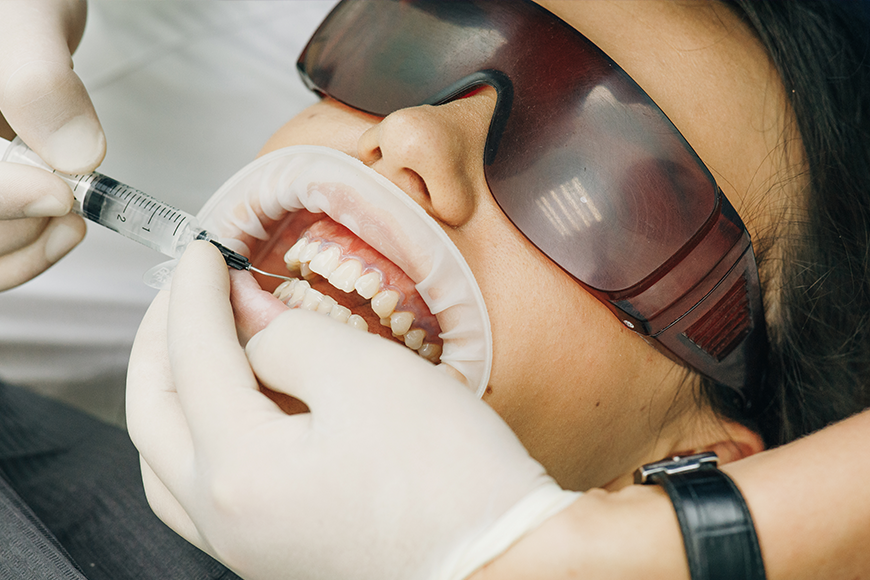Does deep cleaning teeth hurt? It’s a common question among those considering this essential dental procedure. Deep cleaning, or scaling and root planing, is a dental procedure that removes plaque and tartar buildup from below the gumline. While it’s a crucial part of maintaining oral health, many people worry about the potential pain involved. In this comprehensive guide, we’ll delve into the details of deep cleaning, dispel common myths, and provide insights to alleviate any concerns you may have.
Understanding Deep Cleaning
Before we address the pain factor, let’s understand what deep cleaning entails. This procedure is typically recommended for individuals with gum disease, such as gingivitis or periodontitis. During deep cleaning, a dental hygienist or dentist uses specialized tools to remove plaque and tartar from both above and below the gumline.
Does Deep Cleaning Teeth Hurt?
The short answer is: it depends. While deep cleaning is generally a painless procedure, some discomfort may be experienced, especially for individuals with sensitive teeth or gums. However, modern dental techniques and anesthesia options have significantly reduced the pain associated with deep cleaning.
The Procedure Itself
- Scaling: This involves removing plaque and tartar from the tooth surface above and below the gumline. While it might feel a bit strange, it’s typically not painful.
- Root Planing: This process smooths the root surface to remove bacteria and toxins. It might feel slightly more sensitive, but it’s usually manageable.

Recommended Article:
Beyond the Brush: Side Effects of Teeth Cleaning
Beyond the Brush: Side Effects of Teeth Cleaning. Discover the potential risks and complications associated with routine dental procedures. Protect your oral health.
Factors Affecting Pain Perception
Several factors can influence how much discomfort you may feel during deep cleaning:
- Severity of Gum Disease: More severe gum disease, such as advanced periodontitis, can lead to increased inflammation and sensitivity. Extensive tissue damage may require more aggressive cleaning techniques, potentially increasing discomfort.
- Pain Tolerance: Some individuals have naturally sensitive teeth or gums, making them more susceptible to discomfort. Anxiety can amplify pain perception, so relaxation techniques can be beneficial.
- Anesthesia: Local anesthesia can effectively numb the area being treated, minimizing pain during the procedure. In some cases, sedation may be recommended for patients with severe anxiety or low pain tolerance.
- Dental Professional’s Skill: A skilled dental professional can perform the procedure with minimal discomfort, using gentle techniques and precise instruments. Experienced dentists prioritize patient comfort and can adjust their approach to minimize pain.
Tips for a Pain-Free Deep Cleaning Experience
To ensure a comfortable deep cleaning experience, consider the following tips:
- Communicate with Your Dentist: Inform your dentist about any concerns or sensitivities you may have. Open communication can help them tailor the procedure to your specific needs.
- Choose a Reputable Dental Practice: A reputable practice like Madison Dentistry & Implant Center employs skilled professionals who prioritize patient comfort.
- Relaxation Techniques: Practice relaxation techniques, such as deep breathing or meditation, to reduce anxiety and enhance your overall experience.
- Over-the-Counter Pain Relievers: If you anticipate discomfort, consult your dentist about taking over-the-counter pain relievers before or after the procedure.
Post-Procedure Care
After deep cleaning, it’s important to follow your dentist’s instructions for optimal healing and to prevent future gum disease. This may include:
- Oral Hygiene: Maintain a consistent oral hygiene routine, including brushing twice daily, flossing, and using a mouthwash.
- Avoid Irritating Foods: For a few days after the procedure, avoid hot, spicy, or acidic foods that may irritate your gums.
- Regular Dental Checkups: Schedule regular dental checkups to monitor your oral health and catch any potential issues early on.
Conclusion
Deep cleaning is an essential procedure for maintaining oral health. While some discomfort may be experienced, modern dental techniques and anesthesia options have made it a relatively painless experience. By choosing a reputable dental practice like Madison Dentistry & Implant Center and following post-procedure care instructions, you can ensure a smooth and comfortable recovery.
If you have any concerns about deep cleaning or gum disease, don’t hesitate to consult with a dental professional. Early intervention can prevent more serious complications and help you achieve a healthy, beautiful smile.




